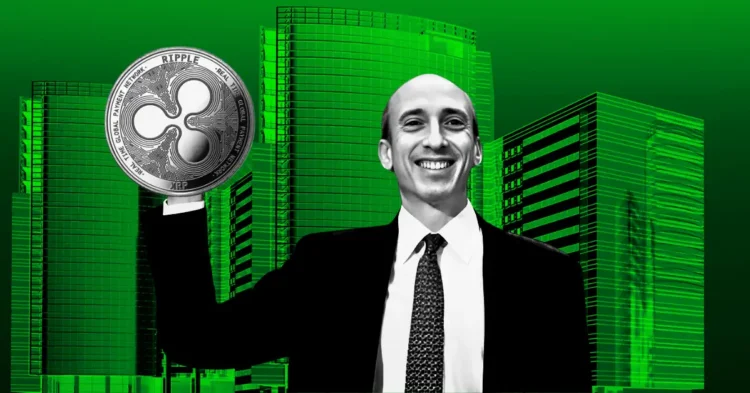Recently, attorneys Kristi Warner and James Murphy, also known by their social media handle @Metalawman, delved into the ongoing developments in the Ripple case on the Crypto Law channel. The conversation centered around the Securities and Exchange Commission’s (SEC) decision to file an appeal following Judge Torres’s ruling. In her verdict, Judge Torres declared that only institutional sales of XRP were unregistered securities. She emphasized that XRP itself does not qualify as a security, and transactions between retail holders that did not involve Ripple were also not considered securities. This distinction has become a focal point in the SEC’s appeal process.
The SEC’s dissatisfaction with the ruling, particularly the classification of XRP as not being a security, prompted their decision to appeal. Their recent filing of a notice of appeal signals the commencement of the next phase in this legal journey. To proceed, the SEC will be required to complete a series of procedural steps, ensuring that all necessary documentation is submitted accurately and on time.
Overview of the Appeal Process
James Murphy provided insights into the atypical nature of the Ripple case, highlighting that it follows the standard appeal process. When an appellant files a notice of intent to appeal, they are allotted 14 days to submit a comprehensive form. This form must detail the attorneys involved, outline the nature of the appeal, and specify the contested issues. Given that the notice of appeal was filed last week, we can anticipate the submission of this form within the stipulated 14-day period.
Key Issues in the Appeal
The appeal is poised to focus on two critical issues. The first revolves around determining whether trades on the secondary market, initiated by Ripple or its executives, constitute investment contracts. Judge Torres ruled against this notion, while the SEC maintains a differing opinion. The second issue pertains to the absence of a disgorgement award, which involves returning profits obtained through wrongdoing. The Second Circuit Court of Appeals previously stipulated that disgorgement requires identifiable victims who have suffered financial losses. Surprisingly, after four years of litigation, the SEC has not presented any such victims.
Complex Legal Issues
In this complex legal landscape, retail XRP holders appear to be the ones adversely affected by the SEC’s actions, while large institutions remain largely unscathed. The disgorgement issue introduces an additional layer of complexity. A panel of three judges from the Second Circuit, in a case known as Govil, ruled that disgorgement cannot proceed unless the victims of securities violations have incurred financial losses. This ruling contrasts with the stance of the Fifth Circuit Court of Appeals, creating a legal conundrum.
XRP supporters may find themselves facing potential setbacks as the legal battle unfolds. If the SEC encounters challenges in their appeal, their remaining option may involve escalating the disgorgement issue to the United States Supreme Court. This prospective move underscores the intricate legal dynamics and the high stakes involved in this case.










